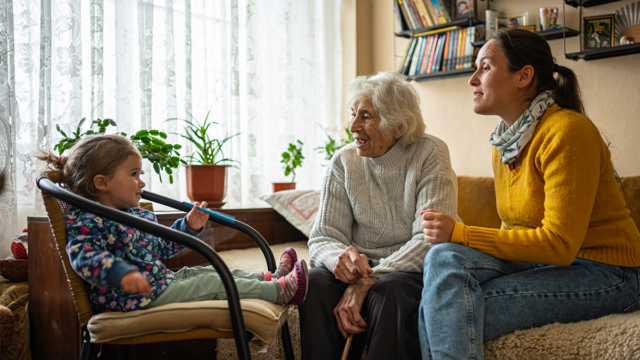A couple of in 5 older People resides with different adults – grownup offspring, dad and mom, grandchildren, prolonged household, pals – who should not their romantic companions.
A brand new research inspecting the housing prices paid by retirees with these preparations finds an enormous gulf in who’s being helped.
The older adults who’re friends in another person’s residence spend about $730 a month much less on utilities and lease or a mortgage than the hosts who invite others into their properties to dwell with them, in accordance with the College of Kentucky and Georgetown researchers.
The retired hosts, who’re both owners or major renters, are spending no much less on housing and utilities than individuals who dwell alone or with a romantic associate.
“The monetary advantages of residing in shared households accrue primarily to older adults who’re friends,” the researchers conclude.
Because the child boomers retire by the hundreds daily, housing affordability, in addition to accessibility for folks with bodily limitations, have gotten high-visibility coverage points. In 2021, 11.2 million retired households had been spending greater than 30 % of their revenue on housing prices. The researchers stated the upper prices paid by older people who find themselves internet hosting others may point out the necessity for a coverage that gives them with monetary help to ease their housing burdens.
They analyzed a U.S. Census survey with detailed knowledge on residing preparations, together with whether or not the folks of their research, throughout age 65, are hosts or friends, in addition to their incomes, and the way a lot every family member pays for lease, the mortgage and utilities. The majority of older adults residing with somebody apart from a romantic associate dwell in intergenerational households. The remaining are both with prolonged household or roommates who’re unrelated.
If hosts aren’t seeing any monetary advantages, the researchers requested, what are they getting from these residing preparations? Maybe they take pleasure in serving to others. Or maybe they hope there will probably be folks round to assist them as they age.
To learn this research by Hope Harvey and Kristin Perkins, see “Shared Households as a Security Internet for Older Adults.”
The analysis reported herein was derived in complete or partly from analysis actions carried out pursuant to a grant from the U.S. Social Safety Administration (SSA) funded as a part of the Retirement and Incapacity Analysis Consortium. The opinions and conclusions expressed are solely these of the authors and don’t symbolize the opinions or coverage of SSA, any company of the federal authorities, or Boston School. Neither the USA Authorities nor any company thereof, nor any of their workers, make any guarantee, specific or implied, or assumes any authorized legal responsibility or duty for the accuracy, completeness, or usefulness of the contents of this report. Reference herein to any particular business product, course of or service by commerce title, trademark, producer, or in any other case doesn’t essentially represent or indicate endorsement, advice or favoring by the USA Authorities or any company thereof.


